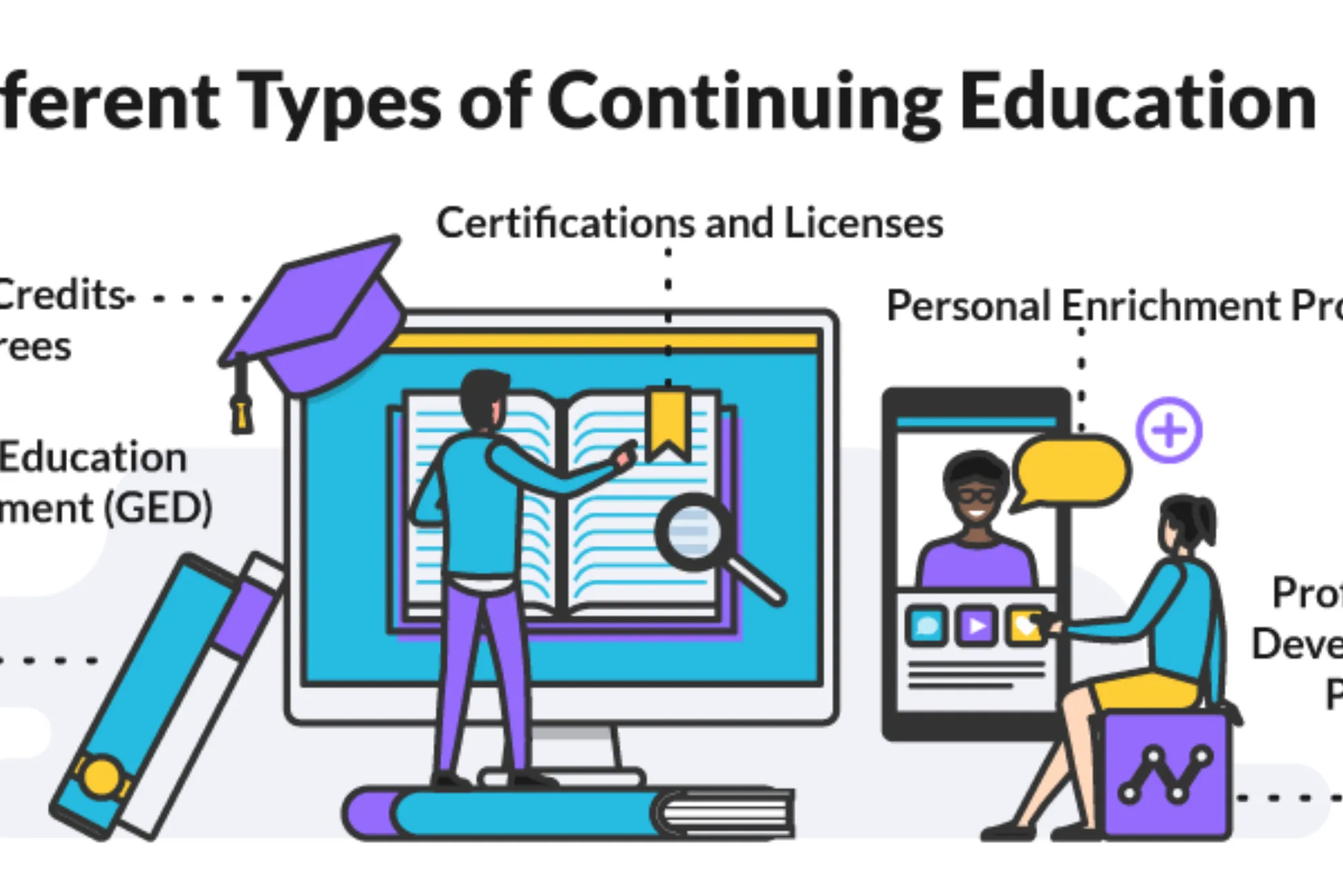Continuing Education Courses
Continuing education courses have become a cornerstone of personal and professional development in today’s rapidly evolving world. Whether you’re looking to advance your career, gain new skills, or simply expand your knowledge, these courses offer endless opportunities for growth. This article explores the benefits, types, and practicalities of continuing education, guiding you toward making informed choices.
Benefits of Continuing Education
For Career Growth
Continuing education courses empower professionals to stay ahead in their fields. By staying updated with industry trends, you can maintain a competitive edge and demonstrate your commitment to excellence. These courses also enhance your skills, increasing your chances of promotions and higher salaries.
For Personal Growth
Learning isn’t just about career advancement; it’s also about personal fulfillment. Expanding your knowledge base boosts your confidence and opens doors to new opportunities. Moreover, the sense of achievement from completing a course contributes to overall self-worth.
For Networking Opportunities
Continuing education courses often bring together like-minded individuals. This creates valuable networking opportunities, allowing you to build connections that can lead to collaborations, mentorships, or career opportunities.
Types of Continuing Education Courses

Professional Certifications
Professional certifications, such as PMP (Project Management Professional), CPA (Certified Public Accountant), or IT certifications, help you specialize in your field and validate your expertise. These credentials often set you apart in competitive job markets.
Academic Degrees
Pursuing advanced degrees, whether part-time or online, offers in-depth knowledge and can open doors to higher-level positions. Examples include Master’s or Doctoral degrees tailored to your career goals.
Skill-Based Training
Workshops and short courses focused on specific skills, such as coding, creative writing, or public speaking, allow you to address targeted learning needs. These are particularly useful for acquiring technical or soft skills.
Online Learning Platforms
Self-paced courses offered by platforms like Coursera, Udemy, and LinkedIn Learning have revolutionized accessibility to quality education. These platforms cater to diverse interests and offer flexibility for busy schedules.
How to Choose the Right Continuing Education Course
Aligning with Goals
The first step in selecting a course is identifying your goals. Are you looking to advance your career, transition into a new field, or explore a personal interest? Clear objectives will help you narrow down your options.
Accreditation and Credibility
Choosing an accredited institution or reputable platform ensures the quality and recognition of your certification. Look for courses backed by well-known universities or organizations in your field.
Cost and Time Considerations
Balancing affordability and flexibility is key. Compare course fees, duration, and schedules to find options that suit your financial situation and availability. Many institutions also offer financial aid or employer sponsorships.
Popular Providers of Continuing Education Courses
Universities and Colleges
Renowned universities and colleges often offer continuing education programs tailored to working professionals. These programs maintain a high standard of education and provide credible certifications.
Online Platforms
Platforms like Coursera, Udemy, and LinkedIn Learning have made education accessible globally. They offer courses on topics ranging from technology to personal development, often at affordable prices.
Industry-Specific Organizations
Many industries have their own training organizations, offering certifications designed to meet specific professional needs. For example, trade groups in healthcare, finance, or IT provide targeted learning opportunities.
Challenges and Solutions

Time Management
Balancing education with work and personal life can be challenging. Prioritize your schedule by setting clear boundaries and allocating dedicated time for learning.
Financial Constraints
Continuing education can be expensive, but scholarships, grants, and employer-sponsored programs can ease the financial burden. Additionally, many online platforms offer free or low-cost options.
Staying Motivated
Consistency is critical when pursuing continuing education. Set realistic goals, track your progress, and celebrate milestones to keep your motivation high.
Success Stories
Real-Life Examples
Countless professionals have transformed their careers through continuing education. For instance, a marketing professional who completed a digital marketing certification might land a high-paying role in a tech company.
Inspiration for Readers
These success stories demonstrate the power of lifelong learning. They prove that with determination and the right resources, anyone can achieve personal and professional growth.
In a world that’s constantly changing, continuing education courses are your gateway to adaptability and success. Whether for career advancement or personal satisfaction, these courses enable you to stay relevant and achieve your goals. Start exploring your options today and take the first step toward a brighter future!
Additional Resources
- Books: “The Power of Lifelong Learning” by Stephen R. Covey.
- Online Platforms: Visit Coursera, Udemy, or LinkedIn Learning.
- Further Reading: Explore articles on the benefits of continuing education on reputable blogs and websites.






